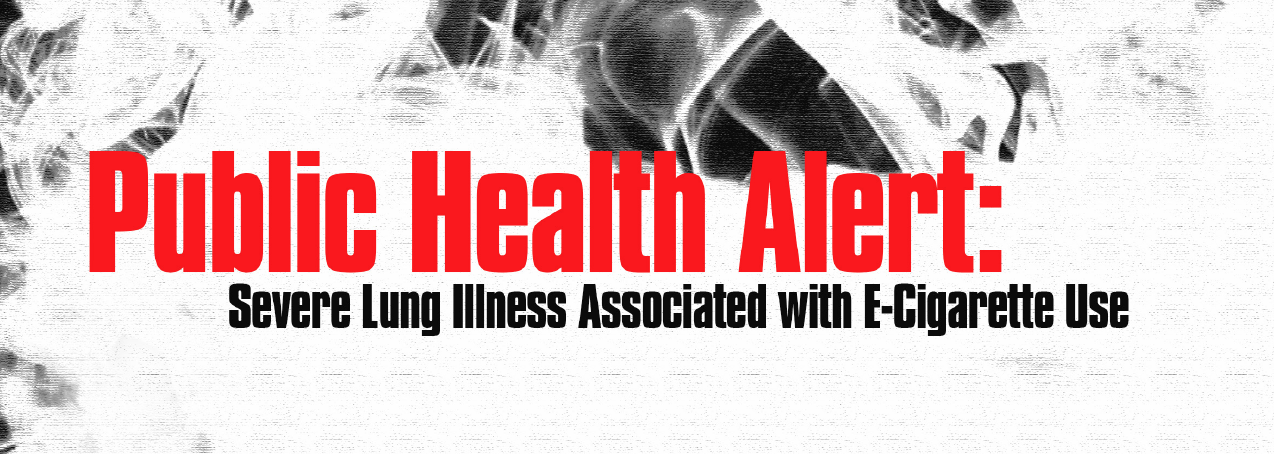
As of Sept. 6, 2019, more than 450 possible cases of a severe lung illness associated with e-cigarette products have been reported across multiple states.One person has died from the illness. All of the patients reported recent use of e-cigarette products, and many stated using devices containing cannabinoid products such as tetrahydrocannabinol (THC) or cannabidiol (CBD). Symptoms of the illness appear over the course of a few days to several weeks and include difficulty breathing, coughing, shortness of breath and/or chest pain. Some individuals also reported mild to moderate vomiting, diarrhea and fatigue.
Although the specific cause of the illness remains unknown, all reported cases include recent e-cigarette or vaping product use. The aerosol from e-cigarettes and vaping products can contain a variety of harmful or potentially harmful ingredients. Also, the contents of e-cigarette and vaping liquids are not highly regulated and can vary from product to product. The U.S. Food and Drug Administration is working with the Centers for Disease Control and Prevention and state health departments to collect information on products used by individuals affected by this outbreak.
Until a cause is determined, service members and their family members who do not currently use tobacco products are encouraged to avoid all e-cigarette or vaping products, particularly those sold off the street or modified to add any substances not intended by the manufacturer. Do not use e-cigarettes in ways unintended by the makers, like dripping or dabbing. Dripping is when users drop e-cigarette solvents onto the device’s hot coils, resulting in more concentrated compounds. Dabbing is when substances containing high levels of THC or CBD are superheated in the device. Adult smokers who are attempting to quit by using e-cigarettes should consult their healthcare provider for consideration of evidence-based alternative methods. If you use e-cigarette or vaping products, monitor yourself for signs of respiratory or gastrointestinal distress and seek prompt medical attention if you experience the indicators described above or any other abnormal symptoms. Additional information is available here.
